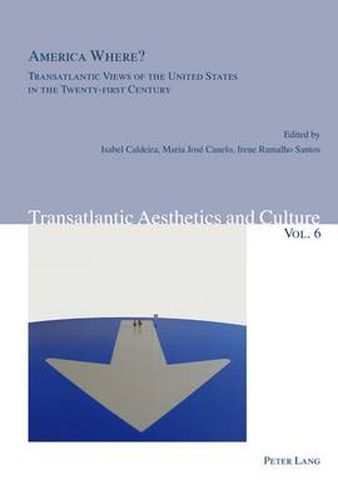Readings Newsletter
Become a Readings Member to make your shopping experience even easier.
Sign in or sign up for free!
You’re not far away from qualifying for FREE standard shipping within Australia
You’ve qualified for FREE standard shipping within Australia
The cart is loading…






America Where? Transatlantic Views of the United States in the Twenty-first Century gathers essays by distinguished American Studies scholars from both sides of the Atlantic. The articles address changing representations of ‘America’ in their many and mutual transnational exchanges, both in the Americas and in Europe. Atlanticism, neo-liberalism, transnationalism, borders, racism, prisons, labor, war and intercultural relations compose the range of approaches to be found in this book. While paying close attention to the geopolitical, social, and cultural fabric of the United States as a nation in its intercultural, cross-border time-spaces, this work brings to question the location of ‘America’ in our time. How does this ‘America’ - both the material, secular nation in the economic and political world, and the mythical, sacred, and spiritual entity, enormously charged with symbolic power - present itself today in the Western and Eastern Hemispheres? The book’s provisional answer is that the most productive America is to be found in the conversations that the cultures of the United States encourage and engage in, both nationally and internationally.
$9.00 standard shipping within Australia
FREE standard shipping within Australia for orders over $100.00
Express & International shipping calculated at checkout
America Where? Transatlantic Views of the United States in the Twenty-first Century gathers essays by distinguished American Studies scholars from both sides of the Atlantic. The articles address changing representations of ‘America’ in their many and mutual transnational exchanges, both in the Americas and in Europe. Atlanticism, neo-liberalism, transnationalism, borders, racism, prisons, labor, war and intercultural relations compose the range of approaches to be found in this book. While paying close attention to the geopolitical, social, and cultural fabric of the United States as a nation in its intercultural, cross-border time-spaces, this work brings to question the location of ‘America’ in our time. How does this ‘America’ - both the material, secular nation in the economic and political world, and the mythical, sacred, and spiritual entity, enormously charged with symbolic power - present itself today in the Western and Eastern Hemispheres? The book’s provisional answer is that the most productive America is to be found in the conversations that the cultures of the United States encourage and engage in, both nationally and internationally.